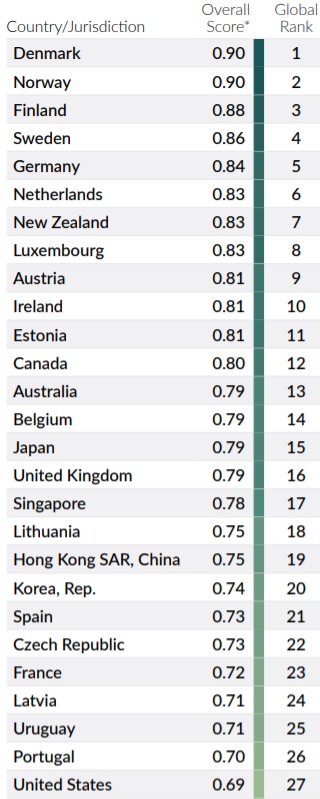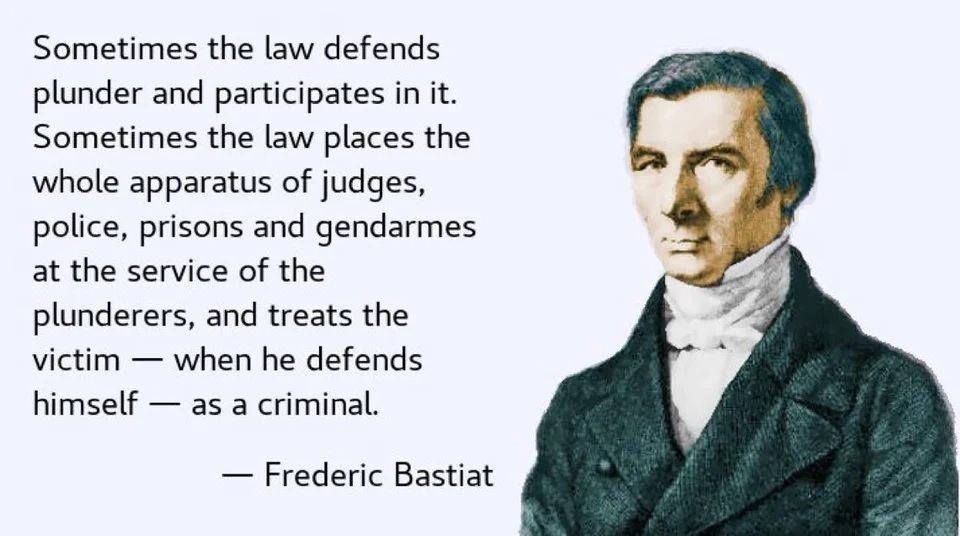Back in 2014, I shared a video explaining why the “rule of law” is important for a just and free society.
Here’s another video on the same point.
When I discuss rule of law (generally when explaining the various components that are used to calculate rankings of economic freedom), I often use a shortcut definition – namely that rule of law exists when government officials don’t have arbitrary power.
 In other words, rule of law is present when even politicians and bureaucrats have to adhere to laws and rules.
In other words, rule of law is present when even politicians and bureaucrats have to adhere to laws and rules.
Where is the rule of law strongest?
According to the World Justice Project, Scandinavian nations are at the top, led by Denmark.
Other European nations – and European offshoot nations – dominate the rankings (there is a benefit to Western Civilization).
A handful of East Asian jurisdictions also get good scores.
And you’ll notice I had to include 27 nations in order to see where the United States ranks.
That’s depressing, especially considering that the U.S. ranked #19 when I first wrote about this report back in 2014.
But at least we’re not Venezuela (gee, what a surprise), which is in last place of the 139 nations included in the rankings.
Readers also should note that the dismal rankings of some other major nations, most notably China (#98) and Russia (#101).
Now let’s consider the economic implications.
In a new working paper from the University of Rome, Esther Acquah, Lorenzo Carbonari, Alessio Farcomeni, and Giovanni Trovato estimate the impact of rule of law on economic outcomes.
We estimate the impact that our measures of institutional quality have on the level and the growth rate of per capita GDP, using a large sample of countries over the period 1980-2015.
…Institutions matter especially in low and middle-income countries, and not all institutions are alike for economic development. For this group of countries, we find: i) a positive correlation between our main institutional index and the GDP growth and ii) that improvement in the reliability and fairness of the legal system leads to a higher long-run per capita GDP level. We also document non-linearities in the causal effects that different institutions have on growth, and the presence of threshold effects.
For what it’s worth, I sometimes state in my speeches that rule of law is akin to the foundation of a building.
It needs to be solid in order for the rest of the building (fiscal policy, trade policy, regulatory policy, and monetary policy) to be livable.
One final point is that you don’t necessarily get more rule of law by enacting additional laws. Indeed, that may actually reduce the rule of law because politicians and bureaucrats then can engage in capricious enforcement.
As pointed out back in the 1800s by the great Frederic Bastiat.
Simply stated, over-criminalization is not a good thing.
P.S. In the are of economic development, there’s a big discussion over whether there needs to be more “state capacity” if we want more growth.
I’ve criticized some advocates because they use “state capacity” as an excuse to push for bigger government.
But it is true that very weak and incompetent governments do a poor job of providing rule of law, so it’s also true that there are instances where it would be good to boost state capacity. Assuming the term is properly defined.

No comments:
Post a Comment